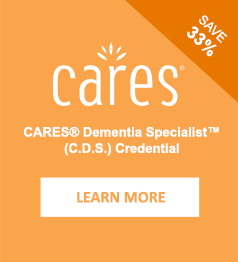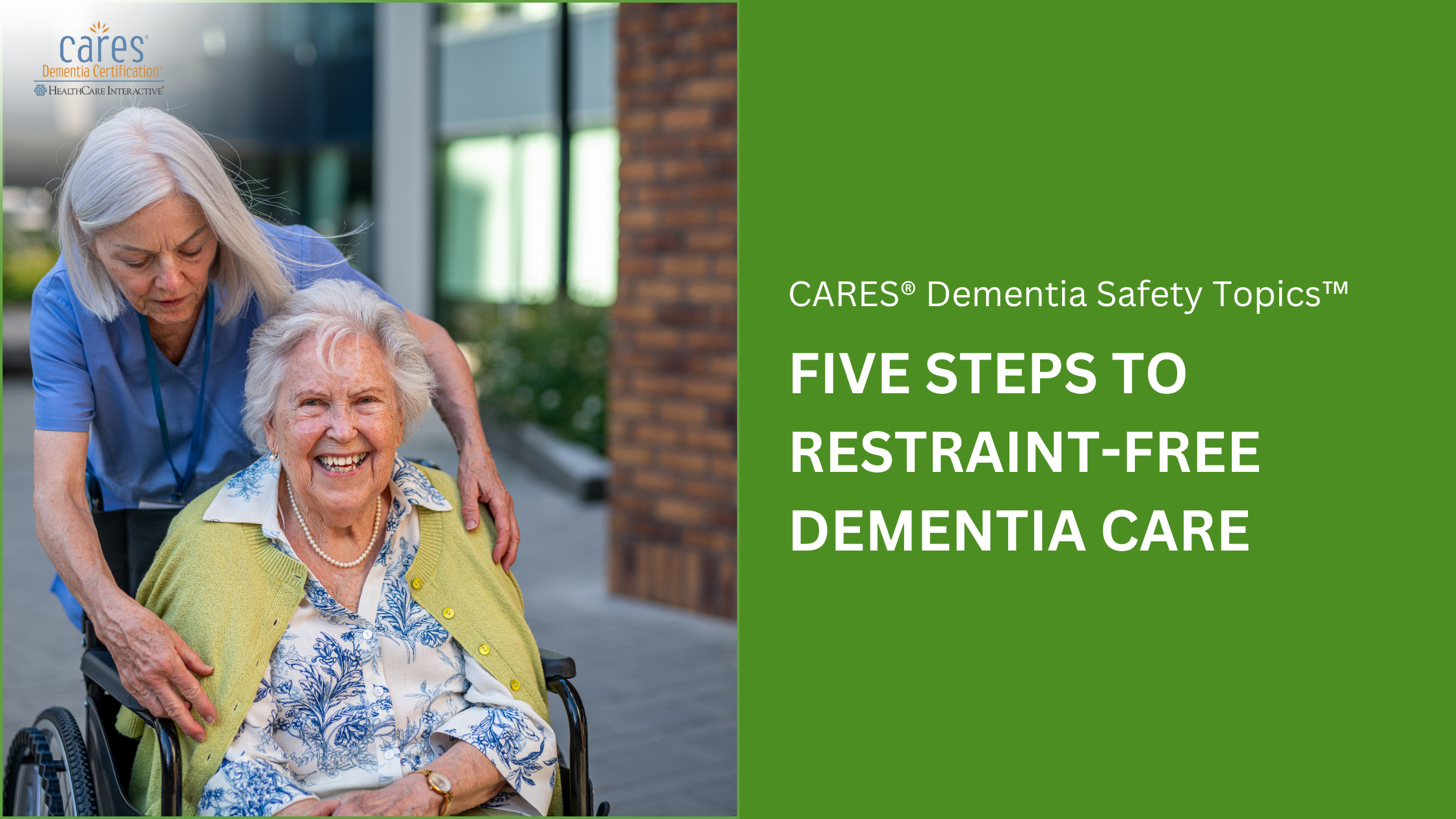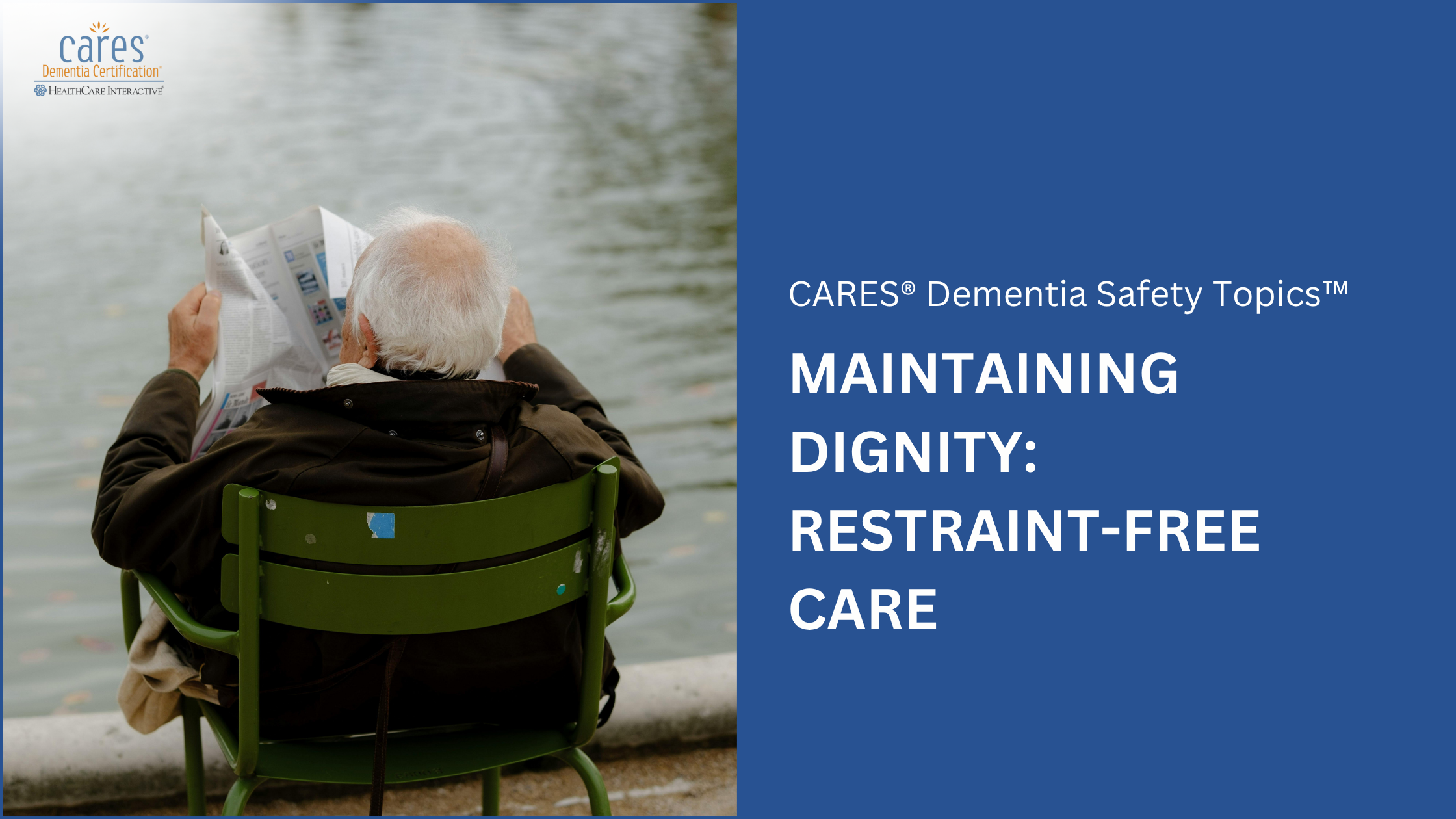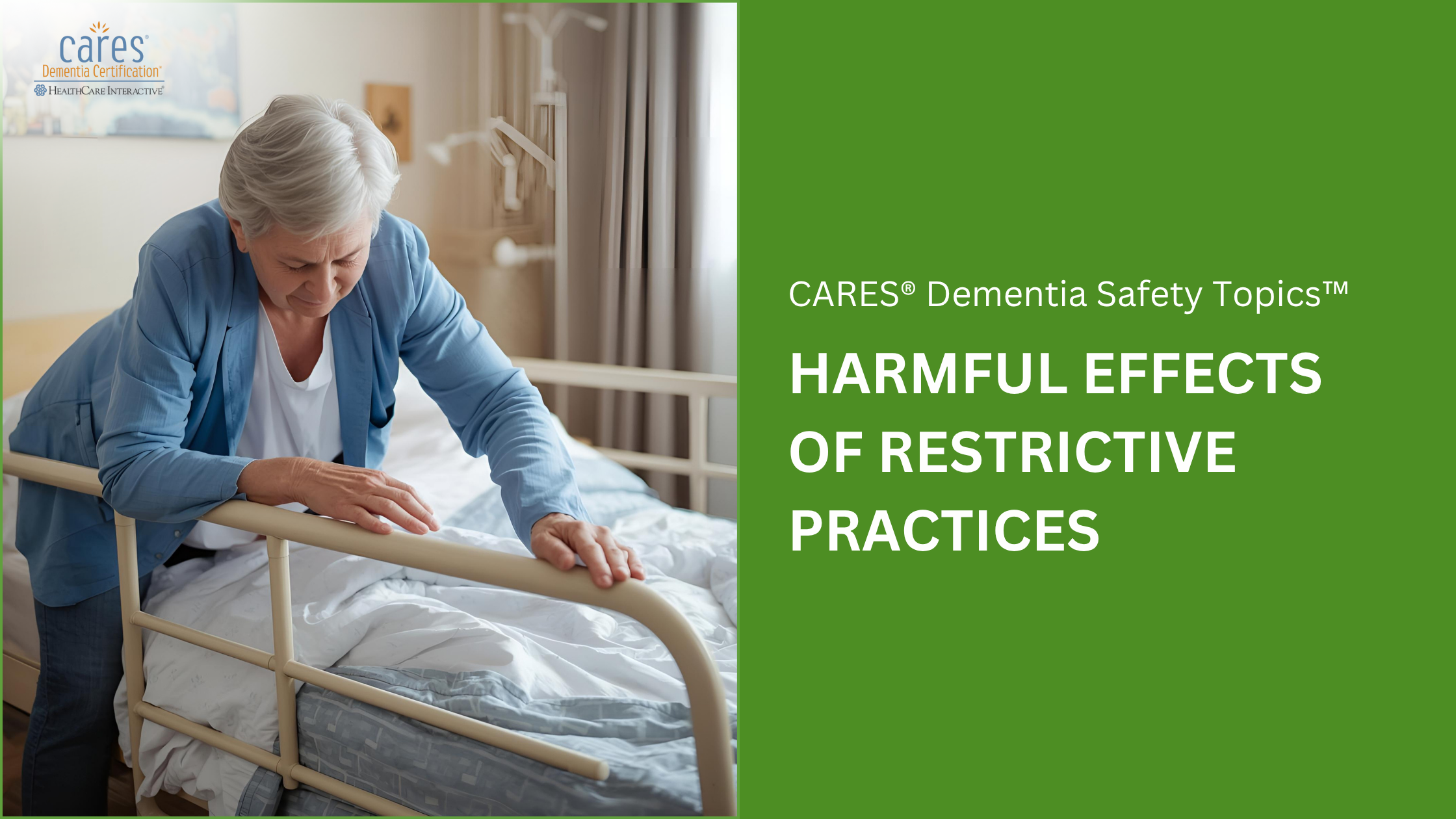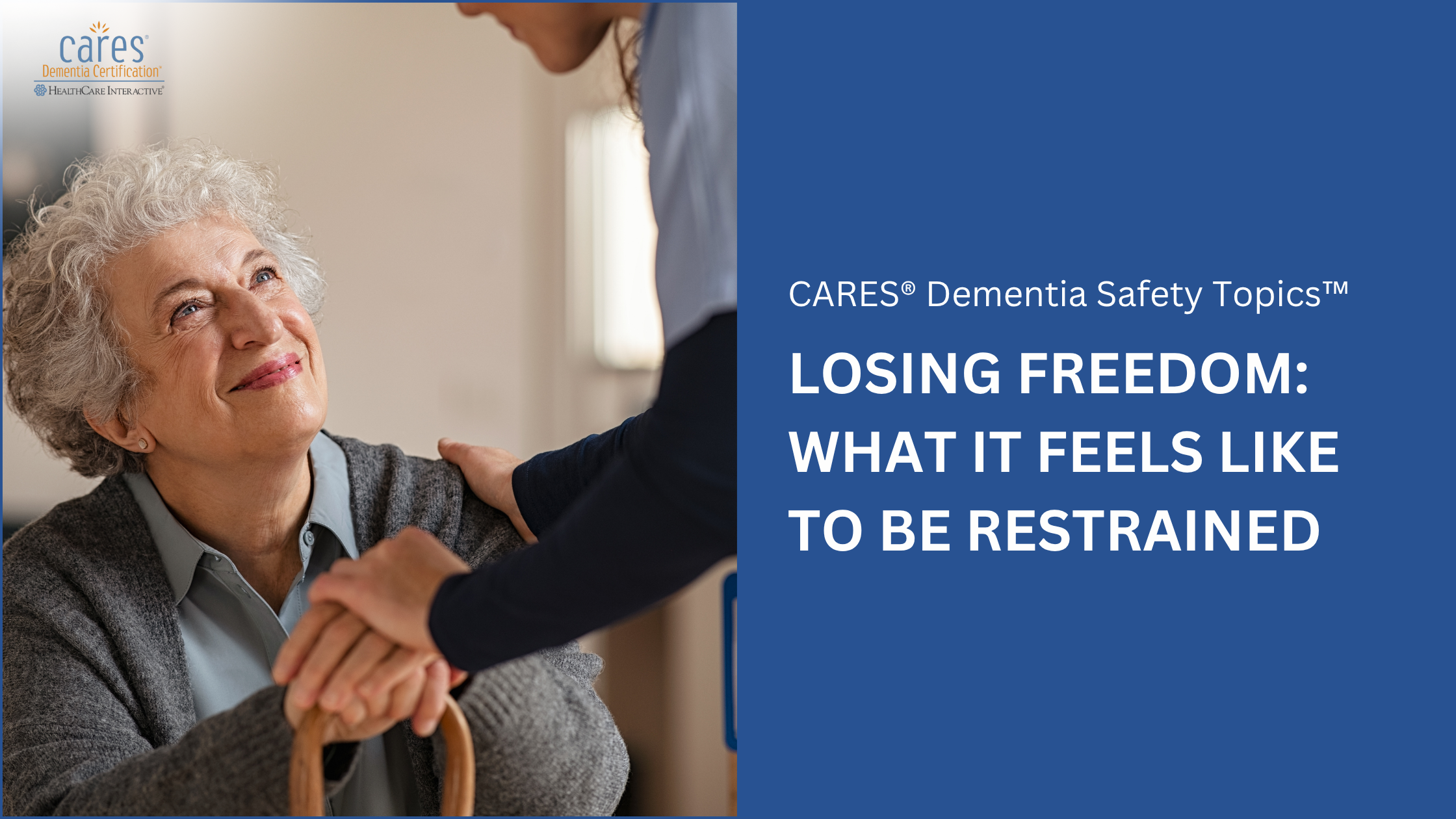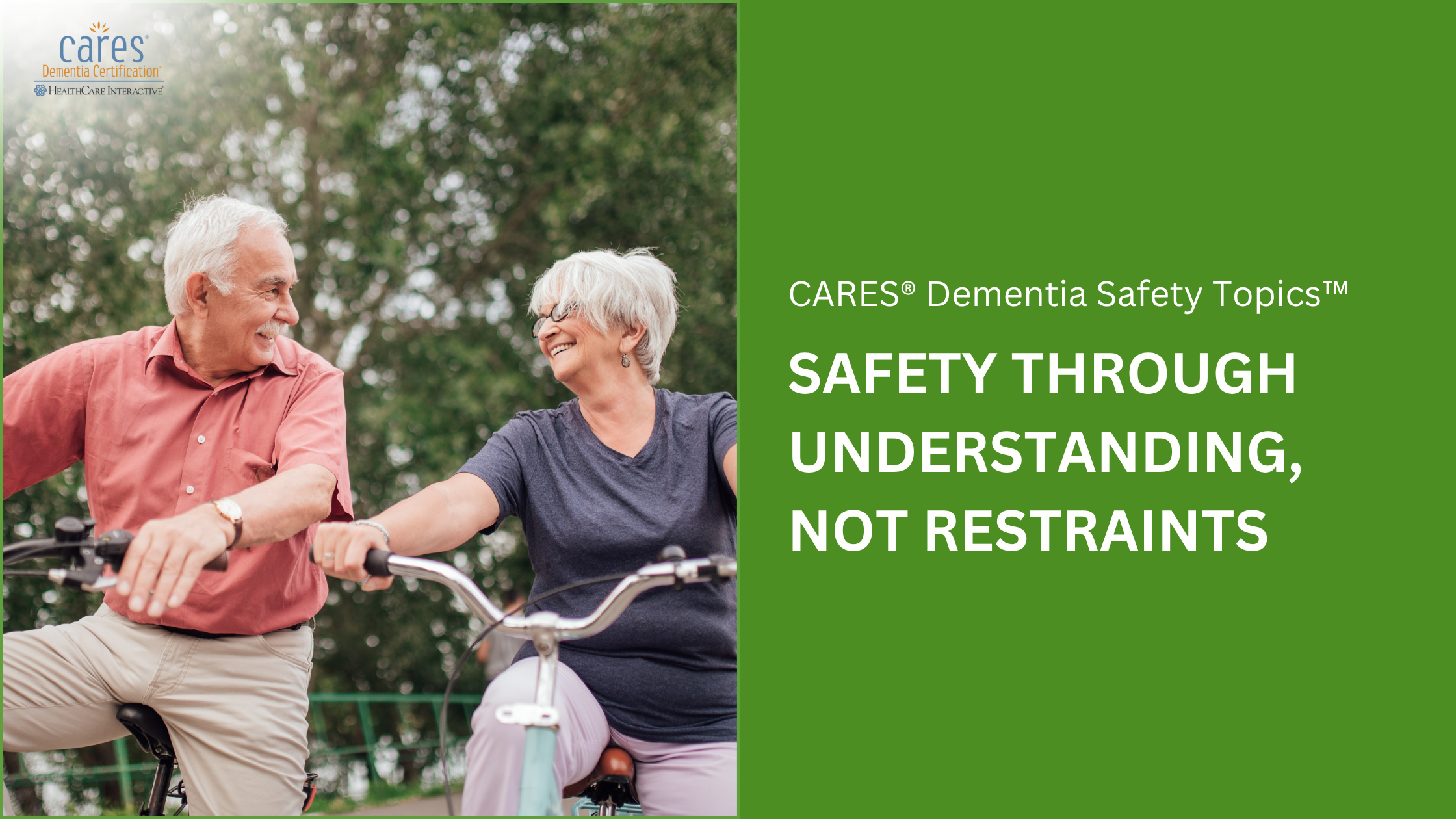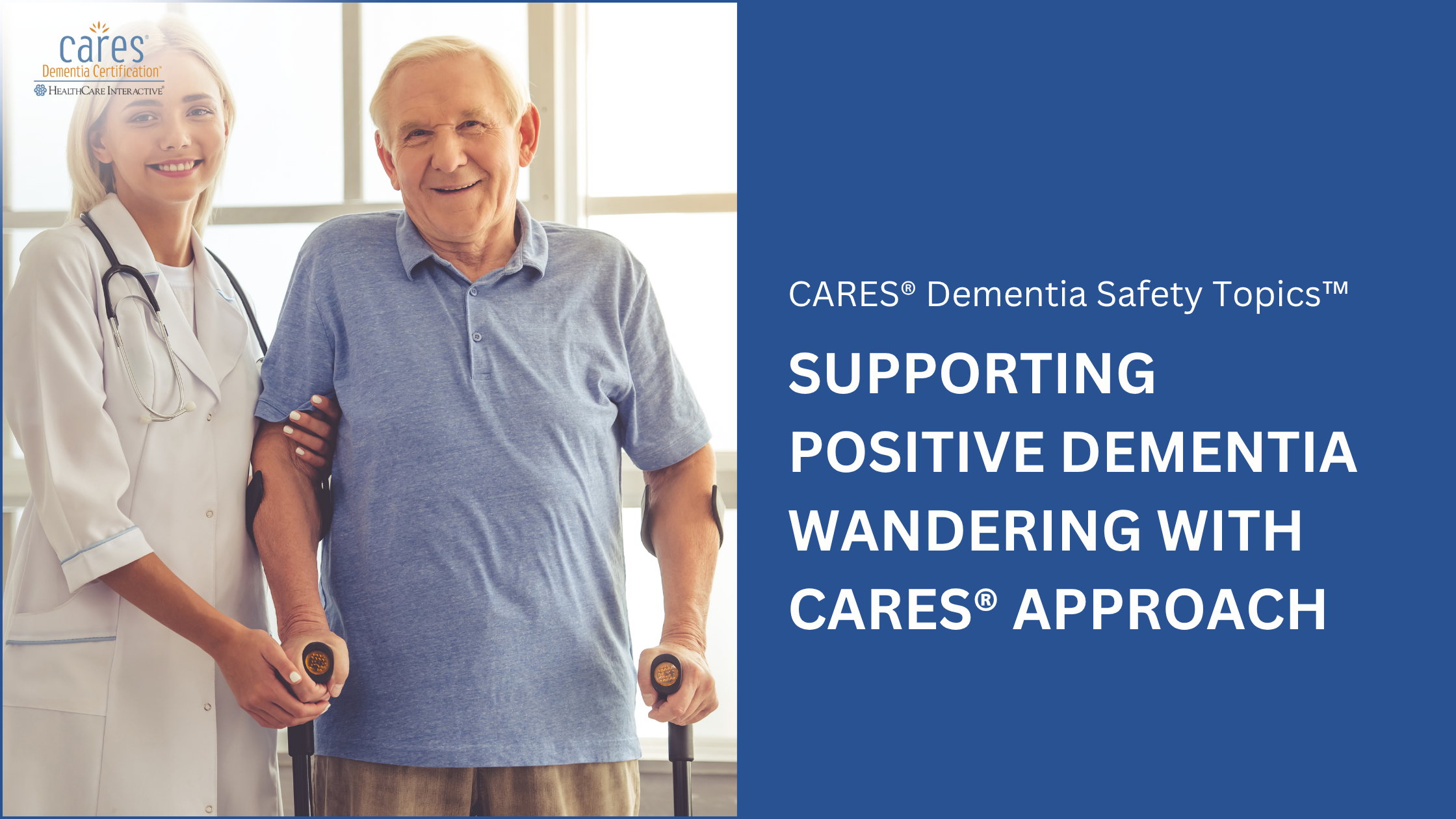Minimizing and eliminating restraints in dementia care is not just a policy goal—it’s a compassionate approach that honors the dignity, comfort, and individuality of every person. By applying what you’ve learned about restraint-free care, you can help create a supportive environment where people with dementia feel safe, valued, and respected.
Here are some practical ways to put restraint-free principles into action.
1. Involve Families in Care
Family members play a vital role in helping caregivers understand the person behind the dementia diagnosis. Their insights can make all the difference in preventing distress and behaviors that might otherwise lead to restraint use.
Ways to Involve Families:
• Learn personal histories. Talk with families about their loved one’s daily routines, likes, dislikes, and comforting habits.
• Identify triggers. Ask about things that might upset the person and should be avoided.
• Find calming strategies. Discuss what brings comfort or reassurance—whether it’s music, touch, or conversation.
• Encourage companionship. Invite family and friends to sit with their loved one and offer support during quiet or stressful moments.
• Support transitions. Ask family members to spend extra time with the person during times of change, such as moving rooms or adjusting to new caregivers.
• Assist with personal care. Family members can often help with intimate tasks, like bathing or dressing, that might cause anxiety.
• Make it feel like home. Encourage families to bring familiar furniture, photos, or keepsakes to personalize the person’s space.
By actively including families, care teams gain valuable information and build trust—all while helping reduce the need for restraints.
2. Create a Supportive Environment
The physical and emotional environment greatly influences behavior. A well-designed space can prevent frustration, confusion, and the need for restraints.
Tips for a Restraint-Free Setting:
• Promote comfort and safety. Adjust wheelchairs to the right height so feet can touch the floor. Avoid unnecessary footrests when they make movement harder.
• Encourage rest. Help tired residents go to bed rather than sit uncomfortably or attempt to move without help.
• Engage through meaningful activity. Offer day and night programs that match individual interests and energy levels. This helps reduce agitation and wandering.
• Protect wounds gently. Keep dressings covered or secured to prevent interference.
• Anticipate needs. Respond quickly to calls for help, and offer snacks, toileting assistance, or repositioning before discomfort occurs.
• Provide supportive seating. Choose chairs with the right height, armrests, and cushions for each person. Individualize how long someone sits up, and vary where they sit throughout the day.
• Limit wheelchair use. Use wheelchairs primarily for transport and offer more comfortable seating whenever possible.
• Use visual cues. Add familiar signs or colors to help people find their way safely and avoid entering others’ rooms.
• Reduce exit stress. Make exits less visible to prevent unsafe wandering outside care areas.
These thoughtful adjustments create a calm, secure environment that naturally decreases the likelihood of restraint use.
The Takeaway
Creating a restraint-free environment is a shared responsibility—and a rewarding one. By involving families, adjusting the environment, and responding with empathy, caregivers can build a community where people with dementia live with dignity, comfort, and freedom.
CARES® Tip: Respond Appropriately
Meaningful engagement is one of the most powerful ways to reduce restraint use. Involve people with dementia in activities that reflect their interests, past experiences, and strengths. Whether it’s folding towels, listening to favorite songs, or watering plants, these small, familiar tasks can bring comfort and purpose.
Talk with your activity director or supervising nurse about ideas for personalized engagement. Together, you can design daily routines that promote independence, reduce agitation, and support a truly person-centered care environment.
Build a safer, restraint-free care environment!
Enjoy 10% off CARES® Training with code Halloween10—offer valid through November 15, 2025.

